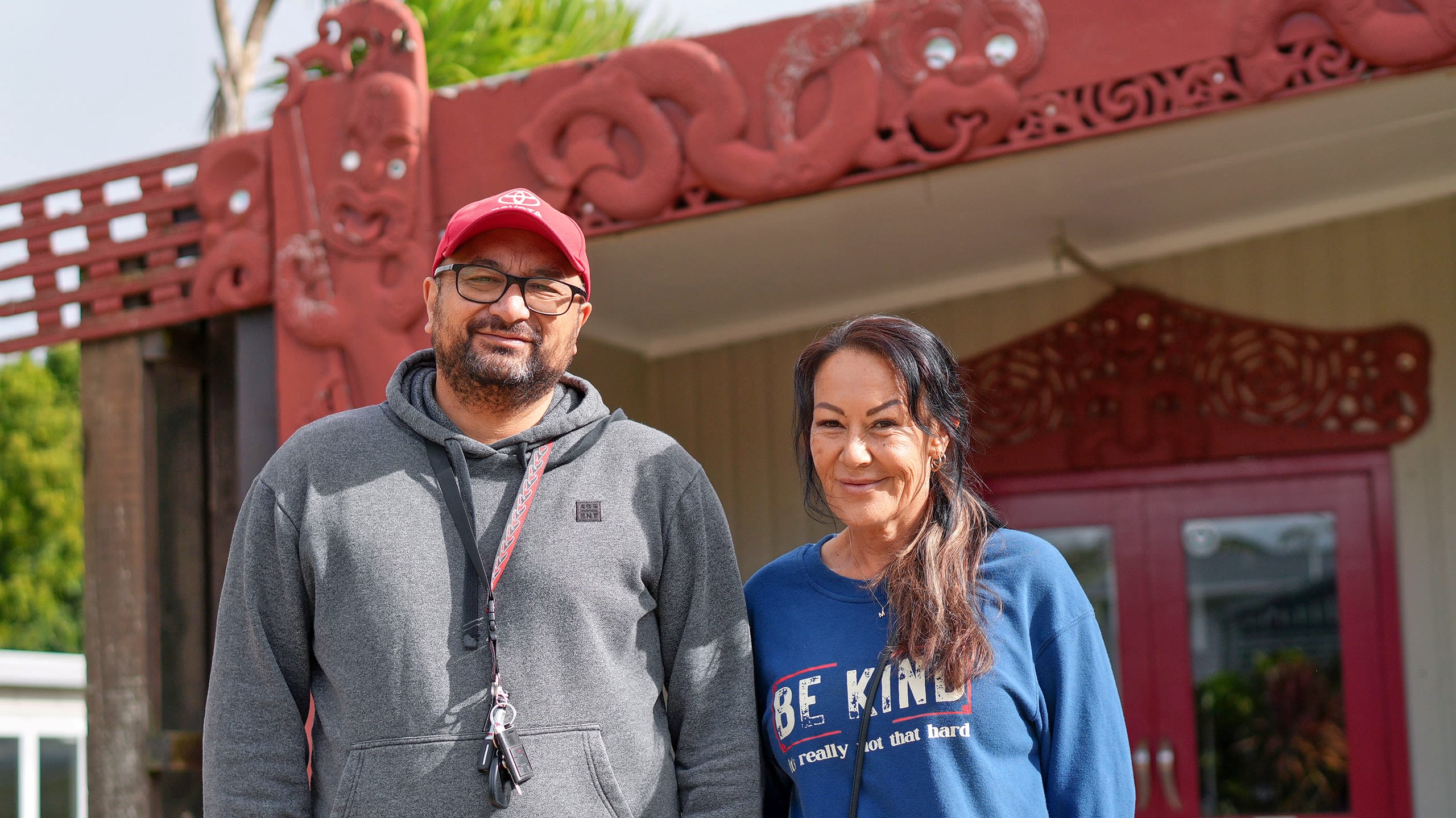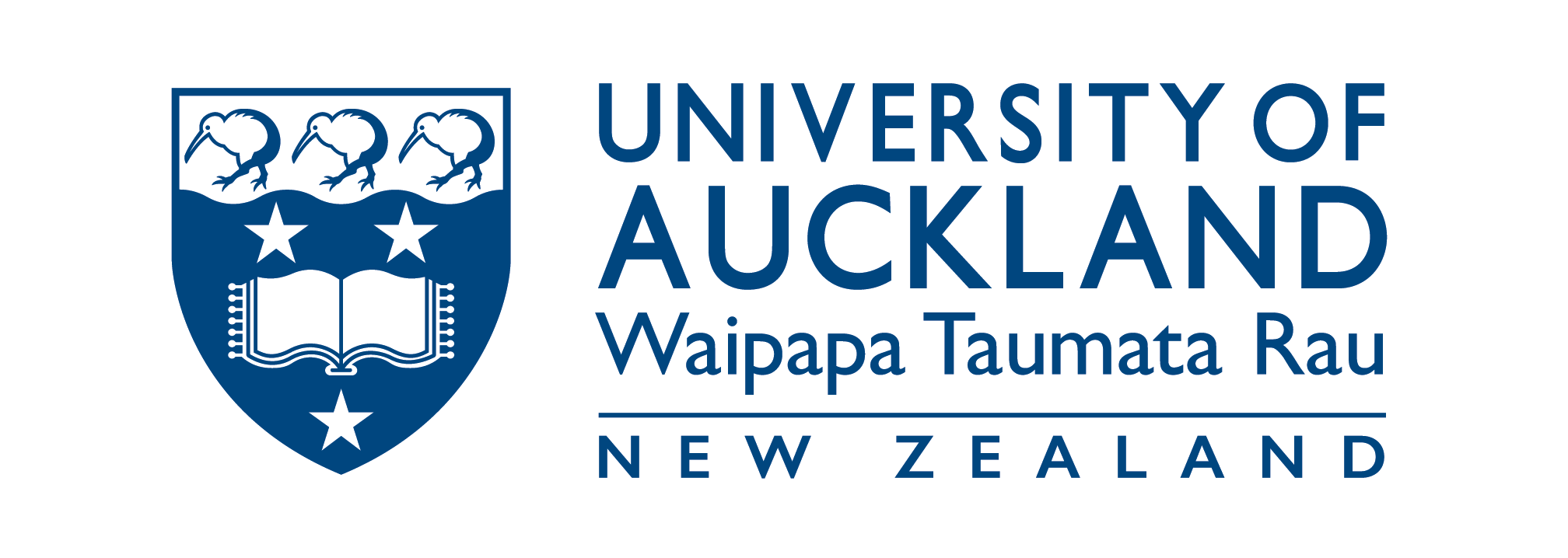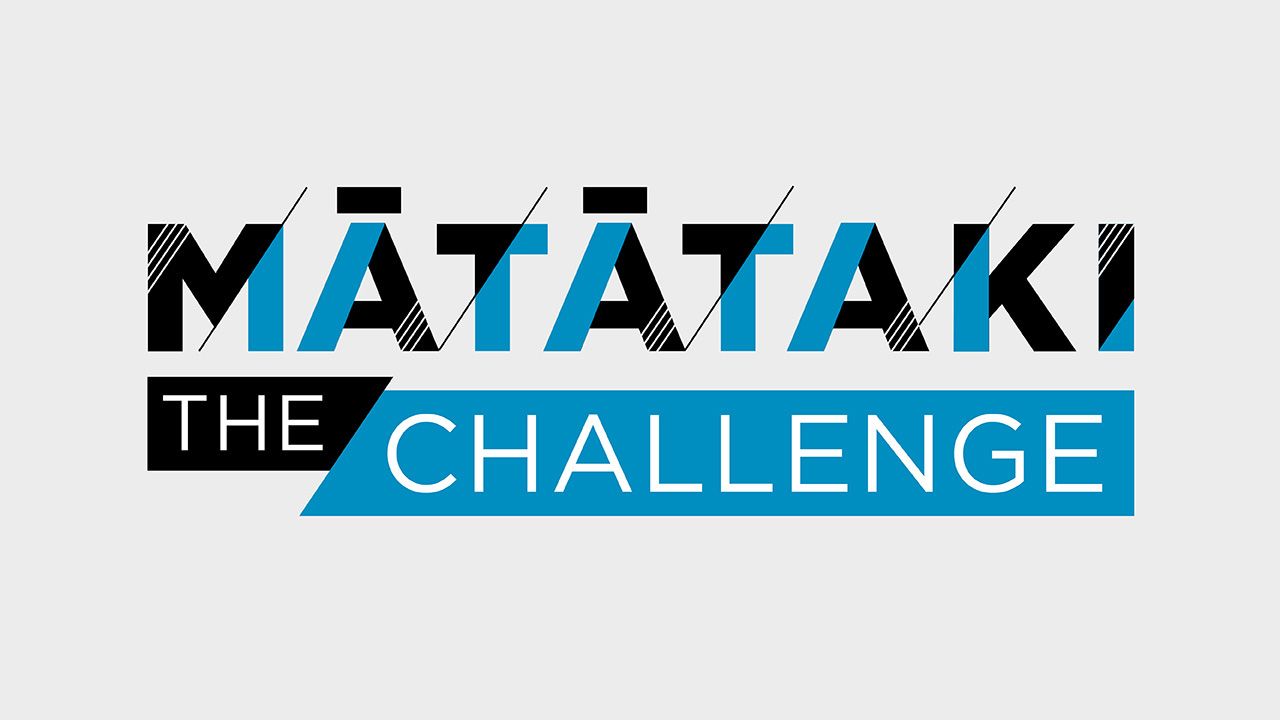Have a kōrero and take time to listen
How a bioengineer and a health advocate are changing the way researchers partner with Māori

He is Dr Jason Turuwhenua (Ngā Tūhoe, Ngāti Porou). Māori. Boffin. Son of schoolteacher parents, crazy about space as a kid, and robots and computers – he was writing programmes while still at primary school.
Studied physics to PhD level, switched to bioengineering because it felt more ‘real world’ and ended up leading a team at the Auckland Bioengineering Institute developing cleverly complex (but easy to administer) eye test technology for young kids, including tamariki Māori.
She is Misty Edmonds (Ngāti Tūwharetoa, Ngāpuhi). Tapuhi Māori and passionate health advocate. Daughter of a Māori dad and Pākehā mother, abandoned as a baby and raised as white in a Pākehā family. Reconnected with her Māori heritage in her early 20s and began to think about how to use that heritage to bridge health gaps for Māori.
Excelled at nursing school and went on to develop and lead the Bachelor of Nursing Māori programme at Manukau Institute of Technology. “Hated research”. Hated research, that is, until eight years ago, when she met Jason Turuwhenua. And then, she says, “research became a lot more interesting”.
As the relationship between Edmonds and Turuwhenua developed, they realised if they put their skills together, they might start to change the way researchers understood Te Tiriti partnership and engaged with Māori.
“If someone throws me over the waterfall, why am I going to be interested in grabbing the rope they send down?”
These days, Turuwhenua is still a dedicated researcher but also the newly appointed chair of ABI’s Māori Advancement Committee. Edmonds is the founder and head of Iwi United Engaged, a consultancy with the purpose of advancing Māori health and well-being “through the development of culturally informed and relevant research”. It isn’t an easy task.
Scratch below the surface of health research and you find some entrenched views - from Māori and non-Māori, Edmonds says. Many Māori are reluctant to take part in research, because of past negative experiences. At the same time researchers are nervous or frustrated as they try to involve Māori in what they see as ‘helpful’ research.
“Māori don’t have a great experience with research and researchers, because those researchers tend to frame their research from a deficit place,” Edmonds says. “Within the research community Māori are perceived – and know they are perceived – as a problem to be fixed.”
It’s not a foundation likely to foster trust between researchers and research subjects, especially when Māori believe many of the ‘problems’ they need ‘saving from’ are the result of Pākehā colonisation and endemic racism in many sectors, including health.
“If someone throws me over the waterfall, why am I going to be interested in grabbing the rope they send down,” says Edmonds.
But change is happening – in the research community, as in the wider Aotearoa New Zealand community. At Turuwhenua’s workplace, the Auckland Bioengineering Institute, the Māori Advancement Committee has been running for the last three years. One of its important aims is to foster an understanding of te ao Māori within a research setting.
Turuwhenua says his roles as ABI’s Associate Dean Māori, and as chair of its Māori advancement Committee allow him to support the mainly tangata tiriti researchers to embrace the concept of tiriti partnership.
“This means staff and students going about their work cognisant of, and contributing positively to, Māori aspirations. It also means ensuring Māori are at the table.” He says ABI starting to work with Iwi United Engaged has been critical, beginning with the Whaia te Tika Māori cultural competency course.
“The programme aims to provide a space for Tangata Tiriti to explore ideas around treaty partnership and make their research more impactful and accessible for tangata whenua/Māori."
More than half of the ABI’s research staff have completed Whaia te Tika. More recently, the ABI has explored the potential of a Manaaki summer student pathway in which Māori and non-Māori students are challenged to view research through a Māori-centric lens.
In November, researchers are invited to take part in a noho marae – a first-of-its-kind multi-disciplinary health research workshop hosted at Turangawaewae Marae.
“The goal of the Kairangahau Wānanga is to build relationships between health researchers and Māori communities by getting everyone in the same space – a Māori space – for a weekend,” Edmonds says.
Participants are expected to stay on the marae overnight, learn traditional Māori protocols, and share their pepeha.
“It’s about looking at advancing Māori health but through a Māori lens,” Edmonds says. “The marae is the only space where we can do things by our rules, where Māori can see there are safe ways to engage.”
Already 175 researchers have registered to attend from all over the motu, including almost 70 from ABI. Edmonds expects at least as many Māori attendees, taking the total to 400-500.
“We propose a kaupapa Māori approach to engage with communities for our Tangata Tiriti kairangahau [non-Māori researchers], so they may have a deeper understanding of how we may bridge the gap between health research and practice,” Edmonds says.
“We will take early research out of the university to engage with Māori communities, using tikanga to ensure a safe and culturally appropriate environment, providing space for Māori voices to share their lived experiences from an individual, whānau and community perspective.”

“Why should somebody who is employed as a scientist be asked to also open all the hui with a karakia and do the mihimihi at all the formal events, particularly since it is typically done without added compensation or recognition.

Time for Pākehā to step up
Dr Tim Angeli-Gordon is a rare breed; a Pākekā academic competent not just in te reo Māori but in marae protocol. He may have spent his early years in the United States, but when he stands up to share his pepeha, an introduction establishing identity and heritage, he says it like he means it.
He admits it’s been a tough road for him to gain a level of competency but says people often don’t appreciate it’s even harder for many Māori. And that being Māori in an organisation can be an increasingly heavy burden.
“We have an under-representation of Māori [in universities and elsewhere], and those that are in those positions are being asked to do more and more and more.
“Why should somebody who is employed as a scientist be asked to also open all the hui with a karakia and do the mihimihi at all the formal events, particularly since it is typically done without added compensation or recognition.
“In my opinion, that’s not OK.”
Three years ago, when Angeli-Gordon took on the inaugural position as chair of the ABI’s Māori Advancement Committee, it was with some reluctance, but also a feeling of the need to share the load.
“It’s really important for Pākehā to step up to support our Māori colleagues. There’s a misconception that people are born with that mātauranga [knowledge]. Most people I know who are fluent in te reo Māori have spent years and years and years, and potentially tens of thousands of dollars.”
Turuwhenua laughs at the idea that his Māori heritage makes him innately capable of standing up in front of the room and leading a karakia.
He’s a scientist and doesn’t enjoy the limelight. He admits he has also found it as hard as any of his non-Māori colleagues to engage Māori with his research.
“At the end of the day, I was just some research guy that turned up and I didn’t have the right skill sets. I couldn’t do it.”
And that’s not surprising, Edmonds says. “To come up with their awesomeness, researchers spend all those years in their dungeon, doing their amazing work. And then they walk out saying ‘We’ve got this cool thing’, and Māori people don’t seem particularly interested because they have never seen them before in their life, because you have been sitting in your dungeon.
“The kaupapa Māori approach is you need a trusted relationship and there’s a process of how you go about that.”
The first step could be as simple as introducing yourself to potential participants with a pepeha, a one-page introduction to the research, and a team photo, Edmonds says, but basically, it’s about building up a long-term relationship; one which doesn’t end just because one lot of data collection is complete.
It’s essential consultation with Māori happens early in the process, she says, not as a tick-box add-on in a grant application. And researchers need to make sure they give their results back into the Māori communities they worked with, not just through journals and conference papers.
“Can I engage with your iwi?”
When Turuwhenua wanted to find a Māori school where he could trial his eye test technology, he asked Edmonds for help. She already had a connection to Kia Aroha College in Ōtara, South Auckland, a school with a strong Māori and Pacific education focus.
“It wasn’t appropriate for me to send Jason down to the school. So, I met with them first, then brought Jason in. We met with the parents and the board, and the students; everyone. And we told them about the team and about the research and we asked, ‘Are you happy with these fellas coming in?’”
And it worked. Back then, Turuwhenua’s successful engagement with Kia Aroha saw his Auckland Bioengineering Institute colleagues asking him to help with introductions for their own work.
SORTING AMBLYOPIA: Jason Turuwhenua has developed novel ways to detect amblyopia or 'lazy eye'.
Edmonds has seen that before. “There’s this sense of ‘Look, you’re a Māori person. Can I engage with your iwi?’ But actually, that’s not your job. These people are researchers and that’s what they are employed to do, and the chances of them being an expert in Māori engagement is probably zero.”
But Edmonds – she found she was good at that. She started helping Jason’s non-Māori colleagues too, and eventually founded Iwi United Engaged.
It's about growing champions
ABI director Professor Merryn Tāwhai says the goal is for Māori engagement to become a key part of research practice throughout the institute, and the fact this started with the relationship between Edmonds and Turuwhenua has a very Māori feel to it.
“Things are relational, right? Misty had a network that she connected with Jason’s project, and we wanted to see that happening across more projects. So, we looked at how we could build a partnership with IUE to upskill our people in terms of kaupapa Māori approaches and an understanding of equity issues.”
While the goal is Māori research for and by Māori, the reality is there aren’t nearly enough Māori researchers, Tāwhai says. “It’s about growing champions with the capability to partner with Māori to do research, because otherwise we are just throwing everything back onto Māori.”
Edmonds says the partnership founded by Te Tiriti o Waitangi in 1840 is still critical today. It means a Māori approach should be at the centre of any sort of research, but it also means non-Māori researchers have a principal place too.
“I see Te Tiriti as a tool that brings us together as partners. Non-Māori don’t have to ask permission to have a relationship with Māori, they already have one. They can absolutely look at recovering that and engaging in Māori research.
“I totally reject the idea that non-Māori people should feel really bad about what’s happened over the last 180 years. It’s not useful, and it also doesn’t help advance the situation of Māori.”
Tāwhai says there is a tendency for researchers to compartmentalise things to do with Māori into one part of their research process, an idea reinforced by the “vision mātauranga” section of research applications. “This should be everywhere, a part of everything. To use a word that can be confronting for non-Māori, it’s about decolonisation. “This challenges us to revisit our thinking as scientists – to think a bit more broadly, more deeply about how you can work with different people with different ways of thinking and interacting.”
Most importantly for researchers, it’s about slowing down, Turuwhenua says, although that doesn’t come naturally in our time-poor, cash-strapped world. “Get together, have a cup of tea, have a kōrero and listen,” he says. “Not doing all the talking: that’s how we can create meaningful partnerships.”


